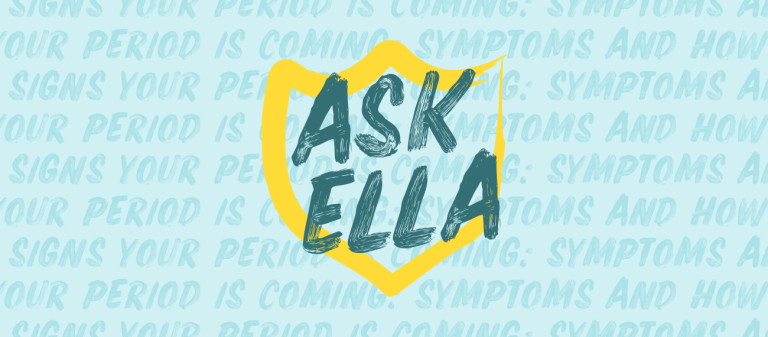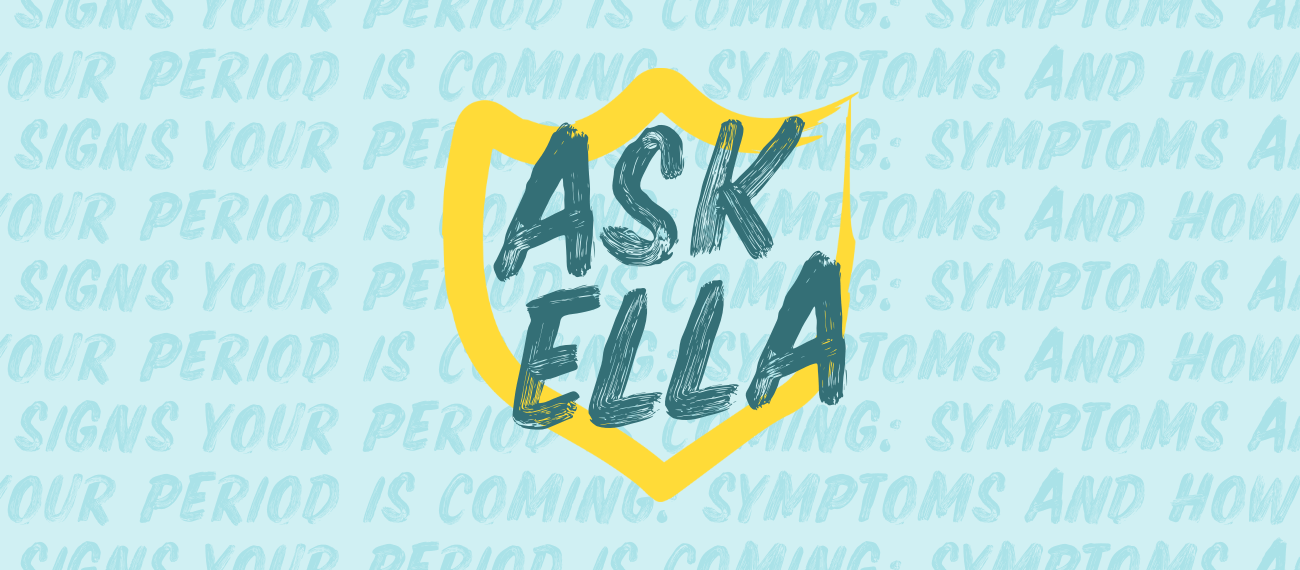Signs your period is coming: Symptoms and how to tell
Have you ever gotten your period unexpectedly? Menstruation is natural and nothing to be ashamed of, but it can be helpful to know when your period is coming so you can make sure you have everything you need and you’re not taken by surprise. Knowing how to tell when your period is coming can also give you context for belly cramps, mood swings and spot breakouts, and can reassure you that this too shall pass.
In this article, we will explore some of the common signs that your period is coming so you know what to look out for. We will also answer some frequently asked questions about periods and emergency contraception.
What are the signs that your period is coming?
“Most women have their own normal when it comes to menstruation,” says Juliet Owen-Nuttall, a fertility well-being practitioner who helps women over 40 get pregnant without IVF. “For women who are busy, it can creep up on them as they have not noticed the subtle changes. Your mood may slightly change, your digestion, weight around your middle and your energy could dip. You may experience a change in food choices and cravings. If you don’t experience pain with your cycle, you might feel some subtle sensations in your uterus as it gets ready to shed.”
The signs that your period is coming can vary from person to person and from cycle to cycle. However, some of the most common signs are:
-
- Cramps: Cramps are pain that typically occurs in your lower abdomen or back before or during your period. They are caused by the contraction of your uterus as it sheds its lining. Cramps can range from mild to severe and may last for a few hours or days.
- Bloating: Bloating is a feeling of fullness or swelling in your abdomen. Bloating around your period is caused by hormonal changes that affect your digestion and fluid retention. Bloating can feel uncomfortable, but it should only last for a few days at the most and should start subsiding as your hormone levels balance out.
- Breast tenderness: Breast tenderness is a feeling of soreness or sensitivity in your breasts that can occur before or during your period. It is caused by hormonal fluctuations that affect your breast tissue. Breast tenderness can make you feel pain or discomfort when wearing a bra or touching your breasts.
- Mood swings: Mood swings are sudden changes in your emotions or feelings that can occur before or during your period. They are caused by hormonal shifts that affect your brain chemistry and mood regulation. Mood swings can make you feel happy, sad, angry, anxious, irritable, or depressed without any obvious reason. Mood swings are fairly common around your period, but they can also be caused by other factors like life circumstances, stress and mental health. Being mindful of your emotions and knowing that they will pass can help with mood swings, and remember that you can speak to your doctor if you have any concerns about your mood. Additionally, you can often self refer for free NHS talking therapies if that’s something you’d like to explore.
- Acne: Acne is a skin condition that causes pimples, blackheads, whiteheads, or cysts on your face or body and can appear before or during your period. It is caused by hormonal changes that increase the production of oil and bacteria on your skin. Many people find that they get a bit spotty around their period, and their skin often clears up during the next phase of their menstrual cycle.
- Headaches: Headaches are a type of pain that can occur in your head or neck before or during your period. They are caused by hormonal changes that affect your blood vessels and nerves. Headaches can range from mild to severe and may last for a few minutes or hours.
- Fatigue: Fatigue is a feeling of tiredness or lack of energy that can occur before or during your period. It is caused by hormonal changes that affect your metabolism and sleep quality. Fatigue can make you feel sluggish, sleepy, or unmotivated. Fatigue is common around your period and sometimes you just need to listen to your body and rest.
These are some of the most common signs that indicate that your period is coming, but they are not the only ones.You may also experience other symptoms such as:
-
- Nausea
- Diarrhoea
- Constipation
- Cravings
- Back pain
- Insomnia
- Changes in libido
These symptoms are also known as premenstrual syndrome (PMS) symptoms, which usually occur one to two weeks before your period starts. Some people may experience more severe PMS symptoms,such as depression, anxiety, or panic attacks, which are known as premenstrual dysphoric disorder (PMDD) symptoms. If you have any concerns about your PMS or PMDD symptoms, you should consult your doctor for diagnosis and treatment.
How do I know when my period will start?
The best way to know when your period will start is to track your menstrual cycle.
Your menstrual cycle is the time between the first day of one period and the first day of the next one. The average length of a menstrual cycle is 28 days, but it can vary from 21 to 35 days depending on various factors such as age, stress level, health conditions etc. You can track your menstrual cycle by using a calendar app on your phone, a paper diary, or simply marking the dates on a regular calendar.
By tracking your menstrual cycle over several months (at least three), you can start to identify patterns and trends such as:
-
- The length of your cycle
- The duration of your period
- The heaviness of your flow
- The intensity of your symptoms
- The ovulation date (the day when you are most fertile)
“Women who track their menstrual cycle will find it helpful to know their normal,” says Juliet Owen-Nuttall. “ Stress, the food we eat and our lifestyle all affect our menstrual health so it’s really important that women monitor their cycle to notice sudden changes.”
Knowing this information can help you plan ahead for your next period and be aware of any changes. It is important to remember, however, that no method of tracking your menstrual cycle is 100% accurate. Your cycle may change due to various reasons such as stress, diet, sleep, illnesses etc. This is why fertility tracking is often not an effective form of contraception, as your cycle can vary and it’s hard to tell exactly when you’re ovulating.
What if I have unprotected sex before my period?
If you have unprotected sex before (or during) your period without using any form of contraception (such as condoms), you may be at risk of pregnancy.
This is because sperm can survive in the female reproductive tract for up to five days after ejaculation and fertilise an egg if ovulation occurs during this time. Ovulation usually occurs around 14 days before the start of the next period but it can vary depending on the length and regularity of the cycle.
If you have unprotected sex before (or after) your period and do not want to get pregnant, you may want to take hormonal emergency contraception. Emergency contraception (EC) is a type of medication that can prevent pregnancy after unprotected sex.
There are two types of EC available in the UK:
-
- Ulipristal acetate, the active ingredient in ellaOne®, is a selective progesterone receptor modulator. It works by blocking the action of the progesterone hormone and thus delays ovulation. It must be taken within 120 hours (five days) after unprotected sex but it is more effective the sooner it is taken. You can get ellaOne® from a pharmacy, a sexual health clinic, your GP or by ordering online.
- Levonorgestrel, which is a synthetic form of the naturally occuring hormone progesterone. It works by delaying ovulation. It must be taken within 72 hours (three days) after unprotected sex but it is more effective the sooner it is taken.
You should use another form of contraception until your next period starts if you are not already, as emergency contraception is only effective for a single instance of unprotected sex and will not continue to protect you against unplanned pregnancy.
If you are concerned about pregnancy, keep these things in mind:
-
- A pregnancy test can detect pregnancy hormone (hCG) in urine about two weeks after conception.
- A pregnancy test result may be affected by factors such as medication use, drinking water etc.
- A pregnancy test result may be false negative (showing negative when pregnant) or false positive (showing positive when not pregnant) in rare cases.
- A pregnancy test result should be confirmed by a doctor.
Periods are a natural part of life and are nothing to be ashamed of. Getting to know your menstrual cycle can help you feel empowered and in touch with your body, and can enable you to plan ahead and make sure you don’t get caught unawares. Remember that your cycle can vary from month to month depending on various external and internal factors, and so whilst period tracking can help you know your cycle your period may come a few days early or late sometimes.
Knowing the signs of when your period is coming can also help reassure you if you have had unprotected sex and taken the morning after pill, as the only way to know for sure that it’s worked is to get your period. Remember that the signs that your period is coming can sometimes be similar to the first signs of pregnancy, so if you have any concerns we advise that you take a pregnancy test and speak to your doctor.
Have you ever taken the morning after pill? Why not share your experience below to help us end the stigma around emergency contraception.
ellaOne® 30mg film-coated tablet contains ulipristal acetate and is indicated for emergency contraception within 120 hours (5 days) of unprotected sexual intercourse or contraceptive failure. Always read the label.




